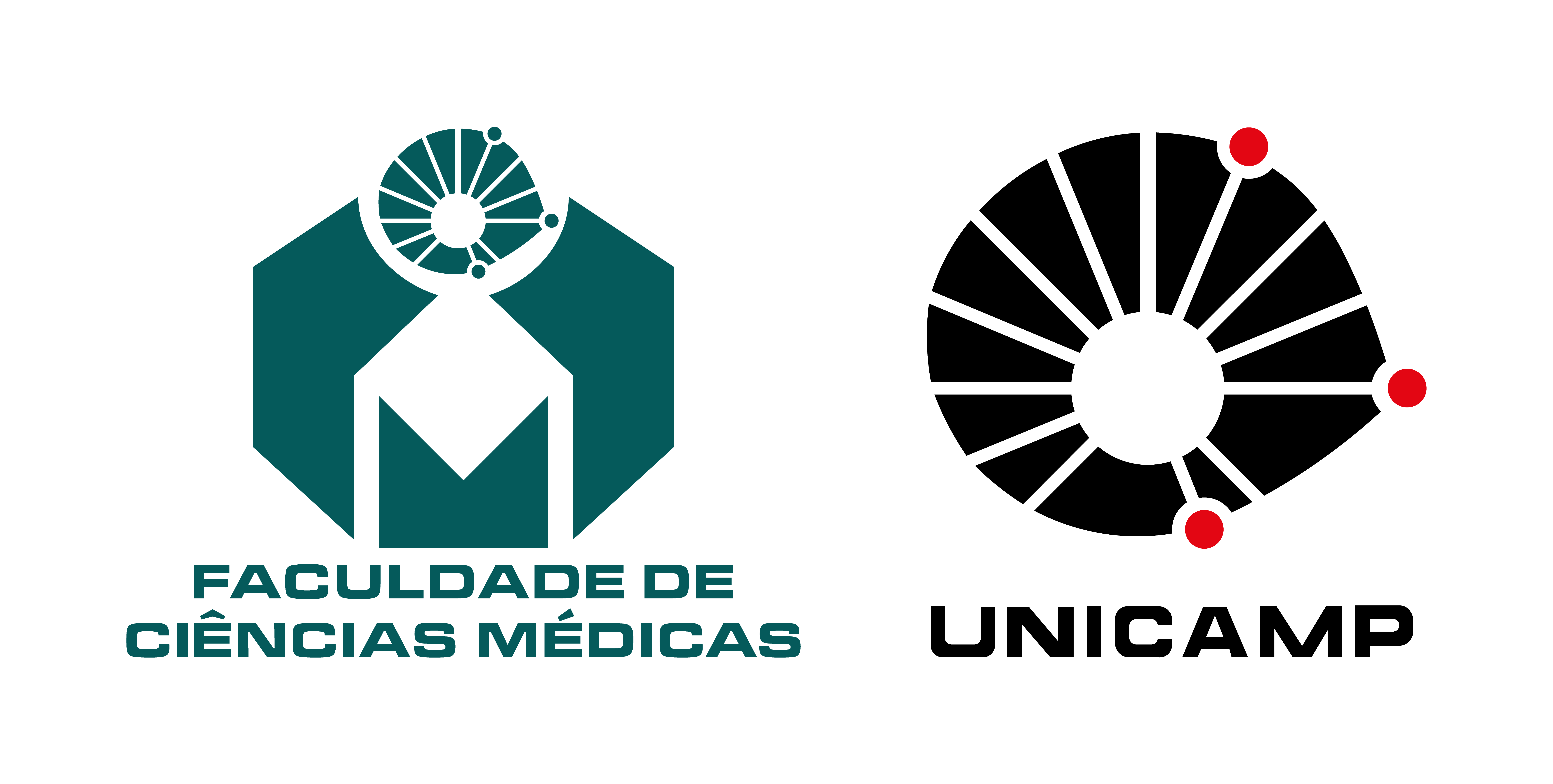The Postgraduate Program in Medical Sciences aims to provide the training of high-level research professors in the various areas of basic or applied medical knowledge, offering conditions for improving their research skills and providing solid theoretical basis, centered on mandatory and elective disciplines that allow the vertical acquisition of knowledge in the different areas of concentration. Its target audience are physicians and non-physicians and its duration is 12 to 30 months for the Master's degree and 24 to 48 months for the Doctorate.
Program Committee and Areas
PhD Professor Cláudia Vianna Maurer Morelli, term from 05/01/2021 to 04/30/2023
Coordinator
Samira Spineli Silva, term from 05/01/2021 to 04/30/2022
Student Representative:
Ayla Cristina Nóbrega Barbosa, term from 05/01/2021 to 04/30/2022
Alternate Student Representative
Concentration Area Coordinators
Pathological Anatomy Area and Clinical Pathology - PhD Professor Maria Letícia Cintra - leticia@unicamp.br and PhD Professor Susan Elisabeth Domingues Costa Jorge
Medical Genetics Area - PhD Professor Társis Antonio Paiva Vieira - tpvieira@unicamp.br
Mental Health, Psychiatry and Neurology Area - PhD Professor Luís Fernando Tófoli - luisfernandotofoli@gmail.com and PhD Professor Ana Carolina Coan - acoan@unicamp.br
Ophthalmology and Otorhinolaryngology Area - PhD Professor Vital Paulino Costa - vp.costa@uol.com.br
and PhD Professor Carlos Takahiro Chone - cchone@icloud.com
Clinical Research Area - PhD Professor Otavio Rizzi Coelho Filho - tavicocoelho@gmail.com
Administrative Technician: Marcinha - cmedfcm@unicamp.br
CONCENTRATION AREAS AND RESEARCH LINES
1) CONCENTRATION AREA: MEDICAL GENETICS
1) Human and Medical Genetics:
Study of heredity and variations in the human genome related to diseases or common in the population. Study of genetic, environmental variations and their interactions, which cause human diseases. Studies of genotype-phenotype correlation, prognosis and treatment of genetic diseases. Functional and animal model studies of variations in the human genome.
2) CONCENTRATION AREA: OPHTHALMOLOGY AND OTORHINOLARYNGOLOGY
1) Clinical and Surgical Therapy of Eye Diseases:
Study of ocular alterations and annexes in prevalent diseases, inflammatory, degenerative, infectious, among others. Analysis and repercussion of drug, surgical and functional treatments. Methods include ultrastructural studies, genetics and clinical studies.
2) Eye Health and blindness prevention:
It studies Social Policies and their relations with eye health, social organization of health practices. Sociocultural analysis and assessment and action projects related to health policies. It studies the creation, development and validation of methodological instruments applied to epidemiology in ophthalmology. Analysis of conditions of efficiency and effectiveness of care practices in ophthalmology aimed at the population and prevention of blindness.
3) Clinical and surgical aspects in Otorhinolaryngology and Head and Neck:
Study of Otorhinolaryngology in a broad way, from the clinical and surgical point of view, considering pathological, anatomical, physiological and propaedeutic aspects, conventional therapeutic approaches, technological advances, results and complications.
4) Physical processes and phenomena related to Otorhinolaryngology and Head and Neck:
Study of the phenomena and physical processes related to the diagnosis, treatment and physiology of different biological tissues and organs, in their normal or pathological forms, and which make up the structures of Otorhinolaryngology and head and neck.
3) CONCENTRATION AREA: PATHOLOGY
1) General Pathophysiology of Human Diseases
It aims to assess laboratory aspects in the general pathophysiology of diseases including adaptive and degenerative phenomena, proliferation and differentiation aspects, as well as inflammatory, immune, infectious, host response, as well as genetic disorders and neoplasms.
2) Diagnostic Tools in Pathology
It encompasses the development and application of techniques that include cytological assessment, surgical specimens, imaging studies, molecular and protein characterization, as well as in the identification of potential biomarkers, as well as new therapeutic targets in the study of predictive development for diseases.
4) CONCENTRATION AREA: MENTAL HEALTH, PSYCHIATRY AND NEUROLOGY
1) Neurology:
It aims to encompass the study of the structure to all functions of the nervous system in its multiple aspects with: clinical neurophysiology, infections and parasitosis, superior cortical functions, heredogenerative syndromes, neuromuscular system, neurovascular abnormalities, neurodevelopment, schooling and learning, neuroimaging, intracranial expansive lesions and cerebrospinal fluid, as well as all specific neurological diseases both in childhood and in adulthood. The study of neurological and complementary sciences seeks integrated knowledge of the processes of prevention, diagnosis, treatment and rehabilitation through the most diverse procedures and research instruments.
2) Mental Health and Psychiatry
This line aims at the in-depth academic study of psychiatry and mental health in general, including psychopathology and psychiatric nosology, epidemiology and treatment of mental disorders, mental health services and public policies, clinical-qualitative studies in mental health and psychiatric teaching.
5) CONCENTRATION AREA: CLINICAL RESEARCH
1) Clinical research
It includes studies conducted in healthy individuals or volunteer patients with observational nature (i) with assessment of clinical outcomes or substitutes outcomes, (ii) translational or (iii) intervention studies.
Selective Process
The admission process takes place every 6–12 months.
Each concentration area has independent assessment, and may involve project analysis, interview and/or written evidence.
ADMISSION NOTICE FOR THE SELECTIVE PROCESS FOR THE 1ST SEMESTER OF 2023 - CLICK HERE!
Mandatory Subjects
• FM990 - Research and Innovation in Health Sciences (mandatory for doctorate)
• FM006 - Research and Innovation in Health Sciences (mandatory for master’s and doctorate)
• FM222 - Methodology in Human Genetics - MANDATORY FOR MEDICAL GENETICS AREA:
Qualification Examination (request 30 days before)
To apply for the qualification examination, the student must:
Have completed the mandatory subjects of your course level;
Have achieved the English reading approval score;
Present the certificate of approval of the ethics committee.
Defense Request
Master's degree - to have passed the qualification examination and present proof of submission of a paper in English in a journal indexed by the SCI and with an impact factor greater than or equal to 1, as the first author and in the theme of the dissertation.
Doctor's degree - to have passed the qualification examination and present proof of ACCEPTANCE or Publication of a paper in English in a journal indexed by the SCI and with an impact factor greater than or equal to 1, as the first author and in the theme of the thesis.
- 56575 views







